Items
Array is exactly
Activism and Movements
-
 Interview: Bethel, Leonard, 2021 Dr. Leonard Bethel is a Professor Emeritus in the Department of Africana Studies at Rutgers. He was born in 1939 in Philadelphia, Pennsylvania. In the interview, he describes growing up in the predominantly Black neighborhood of West Philadelphia, being involved in the Fellowship House, through which he became exposed to the Civil Rights Movement, and working at La Citadelle Camp, operated by activist and educator Layle Lane. After attending Lincoln University for his undergraduate degree, he earned a Master of Divinity at Johnson C. Smith University, during which time he was active in desegregation efforts in North Carolina. He earned a Master of Arts in Theology at New Brunswick Theological Seminary (NBTS) and received a doctorate at the Rutgers Graduate School of Education. He became an ordained Presbyterian minister in 1964. After coming to Rutgers in 1969, he worked to establish the Department of Africana Studies, chaired the department for fifteen years, and served as a faculty member for forty-two years. Through his ministry, he became involved in the anti-apartheid movement, as well as in community service organizations and initiatives. A long-time resident of Plainfield, he served as the pastor at Bethel Presbyterian Church. He is the author of numerous books and articles including Educating African Leaders: Missionism in America and La Citadelle: Layle Lane and Social Activism in 20th Century America.
Interview: Bethel, Leonard, 2021 Dr. Leonard Bethel is a Professor Emeritus in the Department of Africana Studies at Rutgers. He was born in 1939 in Philadelphia, Pennsylvania. In the interview, he describes growing up in the predominantly Black neighborhood of West Philadelphia, being involved in the Fellowship House, through which he became exposed to the Civil Rights Movement, and working at La Citadelle Camp, operated by activist and educator Layle Lane. After attending Lincoln University for his undergraduate degree, he earned a Master of Divinity at Johnson C. Smith University, during which time he was active in desegregation efforts in North Carolina. He earned a Master of Arts in Theology at New Brunswick Theological Seminary (NBTS) and received a doctorate at the Rutgers Graduate School of Education. He became an ordained Presbyterian minister in 1964. After coming to Rutgers in 1969, he worked to establish the Department of Africana Studies, chaired the department for fifteen years, and served as a faculty member for forty-two years. Through his ministry, he became involved in the anti-apartheid movement, as well as in community service organizations and initiatives. A long-time resident of Plainfield, he served as the pastor at Bethel Presbyterian Church. He is the author of numerous books and articles including Educating African Leaders: Missionism in America and La Citadelle: Layle Lane and Social Activism in 20th Century America. -
Interview: Browne, Joseph, 1991Joseph Browne founded the Black Organization of Students (BOS) together with Richard Roper. Browne grew up in Newark and attended white Catholic schools prior to coming to the university. He had left Rutgers for a time to join VISTA (Volunteers in Service to America) and participated in the Newark City Council election of 1968.
-
 Interview: Byrd, Arnold Norris, 2022 This interview was recorded as part of the Black Camden Oral History Project. Arnold Norris Byrd was born to Laura Bertha and Ralph Herman Byrd in Camden, New Jersey, in 1939. Byrd attended Rutgers University in New Brunswick from 1957 to 1961 and earned his Bachelor’s in Psychology while participating in athletics. At Rutgers he was part of the Black Student Union and the ROTC. In 1976, he graduated from Antioch College with a Master’s in Community Education. During the interview, Byrd discusses his family’s decision to move from Virginia as part of the Great Migration and his positive experiences growing up in Camden. He touches on the issue of school integration in the city. The interview includes information about his experiences in the ROTC and his military service in Korea. He ended his service as a captain in the reserves. He describes race relations in the military. He talks about his life-long participation in athletics, especially during his time at Rutgers University and while serving in the military. Byrd returned to Camden and spent most of his life residing in his hometown. The interview highlights his civil service and economic development work in the city, including work for the Welfare Board and his decades as the Executive Director of the Camden County Council on Economic Opportunity (OEO). He describes his relationship with Camden leader Poppy Sharp and the Black People’s Unity Movement. He also discusses his perspectives on Martin Luther King Jr. and Malcom X.
Interview: Byrd, Arnold Norris, 2022 This interview was recorded as part of the Black Camden Oral History Project. Arnold Norris Byrd was born to Laura Bertha and Ralph Herman Byrd in Camden, New Jersey, in 1939. Byrd attended Rutgers University in New Brunswick from 1957 to 1961 and earned his Bachelor’s in Psychology while participating in athletics. At Rutgers he was part of the Black Student Union and the ROTC. In 1976, he graduated from Antioch College with a Master’s in Community Education. During the interview, Byrd discusses his family’s decision to move from Virginia as part of the Great Migration and his positive experiences growing up in Camden. He touches on the issue of school integration in the city. The interview includes information about his experiences in the ROTC and his military service in Korea. He ended his service as a captain in the reserves. He describes race relations in the military. He talks about his life-long participation in athletics, especially during his time at Rutgers University and while serving in the military. Byrd returned to Camden and spent most of his life residing in his hometown. The interview highlights his civil service and economic development work in the city, including work for the Welfare Board and his decades as the Executive Director of the Camden County Council on Economic Opportunity (OEO). He describes his relationship with Camden leader Poppy Sharp and the Black People’s Unity Movement. He also discusses his perspectives on Martin Luther King Jr. and Malcom X. -
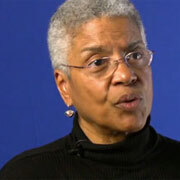 Interview: Clarke, Cheryl, 2012 Cheryl Clarke is a black lesbian feminist whose poetry, editorial work, and career at Rutgers have had a significant impact on black, lesbian, and women’s communities. She is the author of four collections of poetry, often centered around themes of black women’s issues and lesbian issues. She served as an editor of the lesbian publication Conditions for nine years and began working at Rutgers University in 1970. At Rutgers, she served as the founding Director of Diverse Community Affairs and Lesbian/Gay Concerns, which became the Office of Social Justice Education and LGBT Communities in 2004. She was the Dean of Students of Livingston Campus between 2009-2013 and retired from Rutgers in 2013 after 41 years of service. In this interview, Clarke discusses her upbringing in Washington, D.C. during the Civil Rights Movement, her passion for writing, and the role of feminism. Clarke proposes the idea that we, as a society, must be in the “project of transformation” to “create a new humanity” as we reconcile gender and race issues. --- See also an additional interview with Cheryl Clarke, recorded in 2018 by the Rutgers Oral History Archives.
Interview: Clarke, Cheryl, 2012 Cheryl Clarke is a black lesbian feminist whose poetry, editorial work, and career at Rutgers have had a significant impact on black, lesbian, and women’s communities. She is the author of four collections of poetry, often centered around themes of black women’s issues and lesbian issues. She served as an editor of the lesbian publication Conditions for nine years and began working at Rutgers University in 1970. At Rutgers, she served as the founding Director of Diverse Community Affairs and Lesbian/Gay Concerns, which became the Office of Social Justice Education and LGBT Communities in 2004. She was the Dean of Students of Livingston Campus between 2009-2013 and retired from Rutgers in 2013 after 41 years of service. In this interview, Clarke discusses her upbringing in Washington, D.C. during the Civil Rights Movement, her passion for writing, and the role of feminism. Clarke proposes the idea that we, as a society, must be in the “project of transformation” to “create a new humanity” as we reconcile gender and race issues. --- See also an additional interview with Cheryl Clarke, recorded in 2018 by the Rutgers Oral History Archives. -
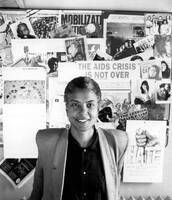 Interview: Clarke, Cheryl, 2018 Cheryl Clarke was born on May 16, 1947 in Washington, D.C. Her father served in the U.S. Army in the Red Ball Express in France after the Allied invasion in June 1944. Growing up in Northwest Washington, D.C., Cheryl attended parochial schools, including Immaculate Conception Academy for high school. From 1965 to 1969, Cheryl attended Howard University and majored in English. During college, she worked part time at the Washington Post and at a Peace Corps office. In 1969, Cheryl came to Rutgers-New Brunswick as a graduate student in English. She earned her M.A. in English in 1974. Cheryl taught courses in the Urban University Program and discusses educational opportunity programs in the interview. From 1972 to 1974, she taught courses in the English Department at Rutgers. A life-long activist, Cheryl discusses her many experiences participating in social movements, including the anti-war and Black Power movements at Howard University, anti-apartheid activism at Rutgers, LGBT activism, feminism and lesbian-feminism, and activism surrounding the defense of Assata Shakur. From 1974 to 1978, Cheryl worked in Middlesex County in the Comprehensive Employment and Training Program. In 1978, she returned to Rutgers to study social work, obtaining her M.S.W. in 1980. In 1980, Cheryl began working in Student Affairs at Rutgers. In 1992, she served as the founding director of the Office of Diverse Community Affairs and Lesbian/Gay Concerns (now called the Center for Social Justice Education and LGBT Communities). From 2009 to 2013, Cheryl served as the Dean of Students for Livingston Campus. In 2000, she earned her Ph.D. in English. At Rutgers, Cheryl coordinated the university-wide Committee to Advance Our Common Purposes and the New Brunswick-wide Bias Prevention Education Committee, in addition to establishing the university-wide network of "Liaisons" and teaching numerous courses. Cheryl is the author of Narratives: Poems in the Tradition of Black Women (1982); Living as a Lesbian (1986); Humid Pitch (1989); Experimental Love (1993); After Mecca: Women Poets and the Black Arts Movement (2005); and The Days of Good Looks: Prose and Poetry, 1980-2005 (2006). From 1981 to 1990, she served as a member of the editorial collective of the feminist literary journal Conditions. In 2013, Cheryl retired after forty-one years at Rutgers. Cheryl and her partner Barbara Balliet co-own Blenheim Hill Books in Hobart, New York and organize the annual Hobart Festival of Women Writers.
Interview: Clarke, Cheryl, 2018 Cheryl Clarke was born on May 16, 1947 in Washington, D.C. Her father served in the U.S. Army in the Red Ball Express in France after the Allied invasion in June 1944. Growing up in Northwest Washington, D.C., Cheryl attended parochial schools, including Immaculate Conception Academy for high school. From 1965 to 1969, Cheryl attended Howard University and majored in English. During college, she worked part time at the Washington Post and at a Peace Corps office. In 1969, Cheryl came to Rutgers-New Brunswick as a graduate student in English. She earned her M.A. in English in 1974. Cheryl taught courses in the Urban University Program and discusses educational opportunity programs in the interview. From 1972 to 1974, she taught courses in the English Department at Rutgers. A life-long activist, Cheryl discusses her many experiences participating in social movements, including the anti-war and Black Power movements at Howard University, anti-apartheid activism at Rutgers, LGBT activism, feminism and lesbian-feminism, and activism surrounding the defense of Assata Shakur. From 1974 to 1978, Cheryl worked in Middlesex County in the Comprehensive Employment and Training Program. In 1978, she returned to Rutgers to study social work, obtaining her M.S.W. in 1980. In 1980, Cheryl began working in Student Affairs at Rutgers. In 1992, she served as the founding director of the Office of Diverse Community Affairs and Lesbian/Gay Concerns (now called the Center for Social Justice Education and LGBT Communities). From 2009 to 2013, Cheryl served as the Dean of Students for Livingston Campus. In 2000, she earned her Ph.D. in English. At Rutgers, Cheryl coordinated the university-wide Committee to Advance Our Common Purposes and the New Brunswick-wide Bias Prevention Education Committee, in addition to establishing the university-wide network of "Liaisons" and teaching numerous courses. Cheryl is the author of Narratives: Poems in the Tradition of Black Women (1982); Living as a Lesbian (1986); Humid Pitch (1989); Experimental Love (1993); After Mecca: Women Poets and the Black Arts Movement (2005); and The Days of Good Looks: Prose and Poetry, 1980-2005 (2006). From 1981 to 1990, she served as a member of the editorial collective of the feminist literary journal Conditions. In 2013, Cheryl retired after forty-one years at Rutgers. Cheryl and her partner Barbara Balliet co-own Blenheim Hill Books in Hobart, New York and organize the annual Hobart Festival of Women Writers. -
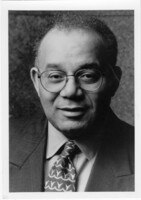 Interview: Curvin, Robert, 1991 Robert Curvin, a retired U.S Army 1st Lieutenant, completed his undergraduate degree at Rutgers-Newark in 1960. He later went on to obtain a master's degree at Rutgers University School of Social Work and a Ph.D. in political science at Princeton University in 1975. At Rutgers-Newark, Curvin served as an Adjunct Professor in the political science department and served as a faculty advisor to the Black Organization of Students (BOS).
Interview: Curvin, Robert, 1991 Robert Curvin, a retired U.S Army 1st Lieutenant, completed his undergraduate degree at Rutgers-Newark in 1960. He later went on to obtain a master's degree at Rutgers University School of Social Work and a Ph.D. in political science at Princeton University in 1975. At Rutgers-Newark, Curvin served as an Adjunct Professor in the political science department and served as a faculty advisor to the Black Organization of Students (BOS). -
 Interview: Donaldson, Vickie, 1991 Vickie Donaldson was the most prominent woman in the Black Organization of Students (BOS) and played an instrumental role in the organizaing activities surrounding the 1969 takeover of Conklin Hall. She grew up in Florida and moved with her mother in Newark in 1967. At Rutgers, she joined the Congress of Racial Equality (CORE) and the campus NAACP chapter before gravitating to the BOS. She graduated from Rutgers-Newark College of Art and Sciences (NCAS) in 1972 with a degree in black studies and sociology. In 1974 she went on to obtain a graduate degree in political theory. She received her law degree from Rutgers in 1982. Since then, Vickie has served as the General Counsel to the Board of Education in Newark, as the town prosecutor in Orange, New Jersey, and is now practicing law in Newark.
Interview: Donaldson, Vickie, 1991 Vickie Donaldson was the most prominent woman in the Black Organization of Students (BOS) and played an instrumental role in the organizaing activities surrounding the 1969 takeover of Conklin Hall. She grew up in Florida and moved with her mother in Newark in 1967. At Rutgers, she joined the Congress of Racial Equality (CORE) and the campus NAACP chapter before gravitating to the BOS. She graduated from Rutgers-Newark College of Art and Sciences (NCAS) in 1972 with a degree in black studies and sociology. In 1974 she went on to obtain a graduate degree in political theory. She received her law degree from Rutgers in 1982. Since then, Vickie has served as the General Counsel to the Board of Education in Newark, as the town prosecutor in Orange, New Jersey, and is now practicing law in Newark. -
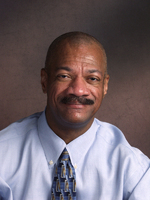 Interview: Glasker, Wayne, 2022 This interview was recorded as part of the Black Camden Oral History Project. Dr. Wayne Glasker is Emeritus Professor of History at Rutgers University–Camden. He is the author of the book Black Students in the Ivory Tower: African American Student Activism at the University of Pennsylvania, 1967-1990. He was born in 1957 in Philadelphia, Pennsylvania, to Mary Johnson and Morris Glasker. His parents were part of the Great Migration and had moved from Virginia to Pennsylvania in search of better work opportunities. In these interviews, Glasker discusses his childhood in Philadelphia and his experiences at the University of Pennsylvania from 1974 to 1994. Glasker earned his Bachelor’s degree in History and Sociology in 1980. He attended graduate school at UPenn as well, earning a PhD in History in 1994. During this time, he was active in the Black Student Union on campus, student government, and in the anti-apartheid movement. He discusses his experiences as a student activist and student government leader as well as the challenges on campus for African American students. In 1990 Glasker began teaching African American history at Rutgers–Camden. He served as director of the Africana Studies program from 1998 to 2011. He describes race relations on campus in the 1990s and student activism at Rutgers. He emphasizes the list of demands from Black student activists following the occupation of the Campus Center at Rutgers–Camden in 1969. He also describes his efforts to increase civic engagement in his classes.
Interview: Glasker, Wayne, 2022 This interview was recorded as part of the Black Camden Oral History Project. Dr. Wayne Glasker is Emeritus Professor of History at Rutgers University–Camden. He is the author of the book Black Students in the Ivory Tower: African American Student Activism at the University of Pennsylvania, 1967-1990. He was born in 1957 in Philadelphia, Pennsylvania, to Mary Johnson and Morris Glasker. His parents were part of the Great Migration and had moved from Virginia to Pennsylvania in search of better work opportunities. In these interviews, Glasker discusses his childhood in Philadelphia and his experiences at the University of Pennsylvania from 1974 to 1994. Glasker earned his Bachelor’s degree in History and Sociology in 1980. He attended graduate school at UPenn as well, earning a PhD in History in 1994. During this time, he was active in the Black Student Union on campus, student government, and in the anti-apartheid movement. He discusses his experiences as a student activist and student government leader as well as the challenges on campus for African American students. In 1990 Glasker began teaching African American history at Rutgers–Camden. He served as director of the Africana Studies program from 1998 to 2011. He describes race relations on campus in the 1990s and student activism at Rutgers. He emphasizes the list of demands from Black student activists following the occupation of the Campus Center at Rutgers–Camden in 1969. He also describes his efforts to increase civic engagement in his classes. -
 Interview: Harris, David, 2012 David Harris was interviewed as part of the City of New Brunswick Redevelopment Oral Histories project at the Edward J. Bloustein School of Planning and Public Policy circa 2012 (the exact date of the interview is unknown). This research project spanned from 2009 to 2016 and resulted in the publication of the book New Brunswick, New Jersey: The Decline and Revitalization of Urban America (Rutgers University Press, 2016). The video of Mr. Harris's interview and the accompanying transcript are available in digital format. In the early 1960s, David Harris lived in South River, near New Brunswick, and studied part time at Rutgers. Harris explains that New Brunswick, known as “Hub City,” used to be the center of African American culture in the region. In 1965, he began working in New Brunswick for the Middlesex County Economic Opportunities Corporation. Harris explores conflicts between the needs of the community and redevelopment agencies led by Johnson & Johnson, and in this context, discusses the demolition of the Memorial Homes housing project. Having served on the board of the New Brunswick Development Corporation (Devco) for a short time, Harris critiques the lack of genuine input from the public. He asserts that Devco wanted to diminish the African American presence in the business district. Consequently, the welfare office, YMCA and YWCA were removed from downtown. Harris reveals the motivations that led to building the current New Brunswick high school on the outskirts of town. He touches upon the Hyatt Hotel, Hiram Market, leaders in redevelopment such as John Lynch and John Heldrich and the roles of Rutgers, the hospitals and arts venues in urban renewal. Finally, Harris alludes to “unfinished business” and what still needs to be accomplished in the community.
Interview: Harris, David, 2012 David Harris was interviewed as part of the City of New Brunswick Redevelopment Oral Histories project at the Edward J. Bloustein School of Planning and Public Policy circa 2012 (the exact date of the interview is unknown). This research project spanned from 2009 to 2016 and resulted in the publication of the book New Brunswick, New Jersey: The Decline and Revitalization of Urban America (Rutgers University Press, 2016). The video of Mr. Harris's interview and the accompanying transcript are available in digital format. In the early 1960s, David Harris lived in South River, near New Brunswick, and studied part time at Rutgers. Harris explains that New Brunswick, known as “Hub City,” used to be the center of African American culture in the region. In 1965, he began working in New Brunswick for the Middlesex County Economic Opportunities Corporation. Harris explores conflicts between the needs of the community and redevelopment agencies led by Johnson & Johnson, and in this context, discusses the demolition of the Memorial Homes housing project. Having served on the board of the New Brunswick Development Corporation (Devco) for a short time, Harris critiques the lack of genuine input from the public. He asserts that Devco wanted to diminish the African American presence in the business district. Consequently, the welfare office, YMCA and YWCA were removed from downtown. Harris reveals the motivations that led to building the current New Brunswick high school on the outskirts of town. He touches upon the Hyatt Hotel, Hiram Market, leaders in redevelopment such as John Lynch and John Heldrich and the roles of Rutgers, the hospitals and arts venues in urban renewal. Finally, Harris alludes to “unfinished business” and what still needs to be accomplished in the community. -
Interview: Harris, Donald, 2013Donald Harris was born in New York, New York in 1940. He attended Rutgers College and graduated in 1963 with majors in English and Physical Education. At Rutgers, Harris was a member of the Air Force ROTC and also played football and lacrosse. He worked as a Civil Rights activist during his student days at Rutgers and, later, as a fieldworker for the Student Nonviolent Coordinating Committee (SNCC) in Southwest Georgia in the early 1960s. In August 1963, he was arrested in Americus, Georgia, while trying to register African-American voters. Harris and two others were charged with insurrection, a capital offense in Georgia. The case stirred support on the Rutgers campus and across New Jersey in the Fall of 1963. Harris was released in November after a federal court declared the law under which he was charged to be unconstitutional. He went on to pursue graduate work at the City University of New York, Harvard Law School, and Columbia University. He worked for Philip Morris International Management and retired as the Vice President of Public Affairs and Communications.
-
Interview: Jackson, Peter, 1991Peter Jackson graduated from Rutgers-Newark in 1969 and later joined the faculty in the Master of Public Administration program. He was a member of the Black Organization of Students (BOS) and was instrumental in negotiations with the university administration and in the group's takeover of Conklin Hall in February 1969.
-
Interview: Jones-Hicks, Delora, 1991Delora Jones-Hicks was secretary for the Business and Industrial Coordinating Council before joining Rutgers-Newark's Office of Public Information in 1968. During her time at the university, she wrote press releases, developed relationships with news organizations, planned events, and was in charge of public relations with the surrounding community. She also served as chair of the Organization of Black Faculty and Staff.
-
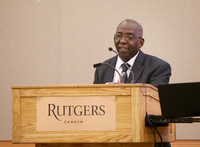 Interview: Jones, Roy L., 2021 Roy L. Jones was born in Fort Lauderdale, Florida in 1946. He spent his early years in segregated Fort Lauderdale. In 1957-'58, he moved to Atlantic City, along with his mother and four brothers, following an aunt who had moved there in the 1940s. He shares his experiences growing up in the Black community in Atlantic City. After attending two HBCUs, he went to University College at Rutgers-Camden and then enrolled in the Rutgers Camden College of Arts and Sciences (CCAS), graduating in 1970. At CCAS, he was active in the Black Student Unity Movement (BSUM). In the interview, he discusses the demands of the BSUM for greater inclusivity and diversity at the University and the takeover of the College Center on February 26-27, 1969. He helped found the Black Cooperative Association, or Black Co-op, in Camden, which provided food, housing, childcare, healthcare and engagement in the arts. He was also a part of the Cooper-Grant Neighborhood Association, which opposed gentrification in Camden. In the second interview, Jones discusses his experiences as an EOF administrator at Rutgers-Camden and his involvement in the Black student protest movement. He also shares remembrances of the Camden uprisings. His work in environmental justice began in 1971 with opposition to building an incinerator in Camden and has continued through involvement in organizations such as the South Jersey Environmental Justice Alliance and the National Institute for Healthy Human Spaces. He delves into his work in addressing water safety issues in Camden and in the city's public schools. He became a Senior Environmental Fellow in 2008 and has authored several publications, including Toxic Schools in New Jersey. This interview was recorded as part of the Black Camden Oral History Project.
Interview: Jones, Roy L., 2021 Roy L. Jones was born in Fort Lauderdale, Florida in 1946. He spent his early years in segregated Fort Lauderdale. In 1957-'58, he moved to Atlantic City, along with his mother and four brothers, following an aunt who had moved there in the 1940s. He shares his experiences growing up in the Black community in Atlantic City. After attending two HBCUs, he went to University College at Rutgers-Camden and then enrolled in the Rutgers Camden College of Arts and Sciences (CCAS), graduating in 1970. At CCAS, he was active in the Black Student Unity Movement (BSUM). In the interview, he discusses the demands of the BSUM for greater inclusivity and diversity at the University and the takeover of the College Center on February 26-27, 1969. He helped found the Black Cooperative Association, or Black Co-op, in Camden, which provided food, housing, childcare, healthcare and engagement in the arts. He was also a part of the Cooper-Grant Neighborhood Association, which opposed gentrification in Camden. In the second interview, Jones discusses his experiences as an EOF administrator at Rutgers-Camden and his involvement in the Black student protest movement. He also shares remembrances of the Camden uprisings. His work in environmental justice began in 1971 with opposition to building an incinerator in Camden and has continued through involvement in organizations such as the South Jersey Environmental Justice Alliance and the National Institute for Healthy Human Spaces. He delves into his work in addressing water safety issues in Camden and in the city's public schools. He became a Senior Environmental Fellow in 2008 and has authored several publications, including Toxic Schools in New Jersey. This interview was recorded as part of the Black Camden Oral History Project. -
Interview: Lawrence, Lincoln, 1991Lincoln Lawrence grew up in Jersey City and received his bachelor of science from Jersey City State College and a master's degree in school administration and supervision from Seton Hall. From 1963 to 1967 he was a science teacher and cultural coordinator at West Kinney Junior High School in Newark. He later worked as supervisor of math and science teachers and director of School Audio-Visual Materials Center for the city of Newark and instructor of manpower training at the Montgomery School in Newark. In 1968 he became assistant director of admissions for the Rutgers-Newark campus, and from 1970 to 1987 he served as Assistant Dean of the Faculty of Arts and Sciences of Newark.
-
Interview: Mitchell, Bryant, 2015Part 1 - Bryant Mitchell was born on July 13, 1947, in Hampton, Virginia. An art history major, he graduated from Rutgers College in 1969. While at Rutgers, he was named most valuable player for the 1968 football season. He is a 1992 Rutgers Football Hall of Fame inductee. During Mr. Mitchell's first interview, he recalls growing up in Virginia, an early exposure to Civil Rights activism by way of his father, Henry Bryant Mitchell, and his time at Rutgers. He joined the 25th Infantry Division in 1969. Part 2 - Mr. Mitchell served in the 25th Infantry Division from September 1969 to September 1971 as a combat MP. He was stationed at Cu Chi before being assigned to Dau Tieng. After leaving the military, Mr. Mitchell entered the University of Virginia Law School and graduated in 1975. Currently, Mr. Mitchell works in real estate, owning his own brokerage in the Washington, D.C. metropolitan area.
-
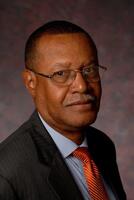 Interview: Roper, Richard, 1991 Richard Roper graduated from Rutgers-Newark with a bachelor's degree in economics and completed a master's in public affairs at Princeton University. During his years at Rutgers-Newark, he served first as the president of the NAACP chapter, and then as co-founder and president of the Black Organization of Students (BOS), which was organized out of the time of social unrest following the Newark Riots and an era of civil rights struggle. After college Roper held a number of positions in Newark and federal government. He was a legislative aide and lobbyist for Newark's first African-American mayor, Kenneth Gibson, served as director of the Office of Newark Studies, was appointed special assistant to the secretary of commerce, Juanita Kreps under the Carter Administration, and served for 12 years as assistant dean at the Woodrow Wilson School of Public and International Affairs at Princeton University.
Interview: Roper, Richard, 1991 Richard Roper graduated from Rutgers-Newark with a bachelor's degree in economics and completed a master's in public affairs at Princeton University. During his years at Rutgers-Newark, he served first as the president of the NAACP chapter, and then as co-founder and president of the Black Organization of Students (BOS), which was organized out of the time of social unrest following the Newark Riots and an era of civil rights struggle. After college Roper held a number of positions in Newark and federal government. He was a legislative aide and lobbyist for Newark's first African-American mayor, Kenneth Gibson, served as director of the Office of Newark Studies, was appointed special assistant to the secretary of commerce, Juanita Kreps under the Carter Administration, and served for 12 years as assistant dean at the Woodrow Wilson School of Public and International Affairs at Princeton University. -
Interview: Sanks King, Vivian, 1991Vivian Sanks King was a member of the NAACP while enrolled at Rutgers-Newark, but migrated toward the more militant Black Organization of Students (BOS), and became an active leader. She graduated in 1970 with a political science degree from the College of Arts and Sciences at Rutgers-Newark, and in 1985 completed her law degree at Seton Hall Law School. She served as General Counsel for the University Medicine and Dentistry of New Jersey (UMDNJ) before going into private practice and has received numerous awards and honors for her dedicated service in law and policy. She presently serves on the Boards of Leadership Newark, New Jersey Public Policy Research Institute, Planned Parenthood of Metropolitan New Jersey, New Jersey Women and AIDS Network, the Garden State Bar Association, and is past chair of the Community Health Law Project.
-
Interview: Snell, Harrison, 1991Harrison Snell grew up in Newark and graduated from Rutgers-Newark in 1970. He received his law degree from Rutgers-Newark School of Law in 1973, and has practiced law for many years as a member of the State Bar Associations of New Jersey, New York, and Washington, DC. While at Rutgers-Newark, he served as president of the Black Organization of Students (BOS) and played an integral part in the planning and negotiation of the 1969 takeover of Conklin Hall and related events.
-
Interview: Van Blake, Donald, 2007Donald Van Blake was born in Plainfield, New Jersey, and during the Second World War served in the "Red Ball Express" as a truck driver. After the war, he was active in the Civil Rights Movement and went on to have a career in transportation.
